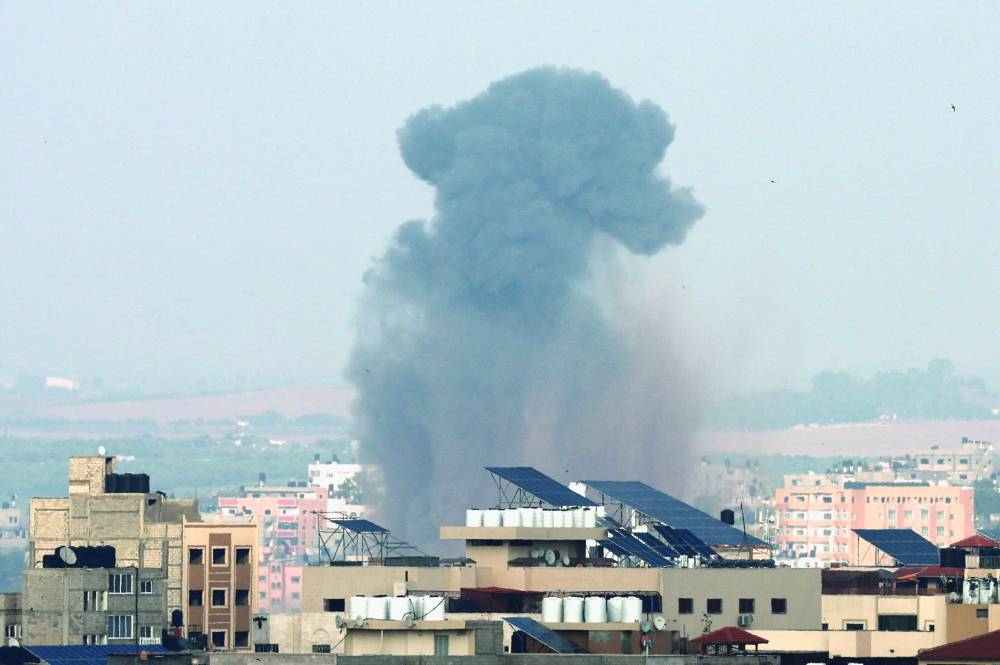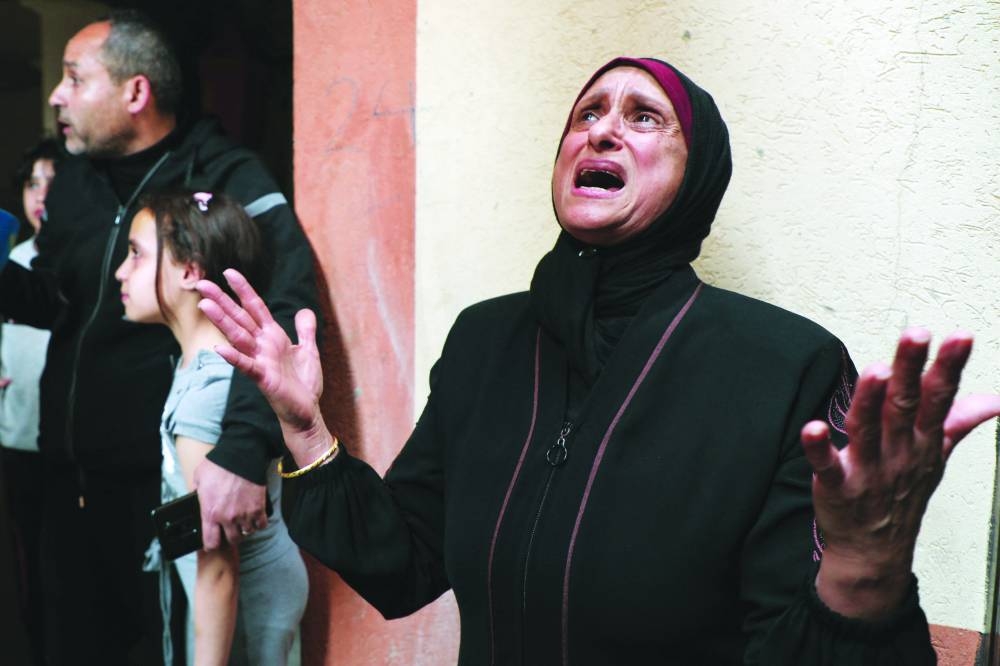
Smoke rises following an Israeli strike, in Gaza.

A Palestinian woman reacts following an Israeli strike on an apartment in Gaza.
Israel launched heavy fire yesterday as hopes faded of securing a truce to end days of fighting that have killed dozens. The violence has been met with international calls for de-escalation, with the European Union pushing for an “immediate comprehensive ceasefire”.
Israel announced it was “striking Islamic Jihad targets” in the densely populated Palestinian territory, while AFP journalists saw air strikes hit Gaza City.
Sirens warning of incoming fire meanwhile rang out in Israeli communities close to the border with the Gaza Strip, as well as blaring in an Israeli settlement near Jerusalem in the occupied West Bank.
Violence broke out on Tuesday when Israel killed three top members of the Islamic Jihad group, while subsequent strikes have killed at least three other senior figures. A high-ranking commander, Iyad al-Hassani, was killed in a strike on a Gaza City apartment Friday, a spokesman for the group told AFP.
Hours earlier, Islamic Jihad said the latest rocket fire was a “response to the assassinations and the continued aggression against the Palestinian people”. The launches, witnessed by AFP journalists, came after a rocket killed one civilian in the central Israeli city of Rehovot on Thursday night. At least 33 Palestinians have been killed, according to Gaza’s health ministry, including militants but also children. Daily life in the coastal territory, ruled by the Hamas, has largely come to a standstill, while Israel has told its citizens near Gaza to stay close to bomb shelters.
In Gaza’s central Deir al-Balah area, farmer Belal Basher stood beside the ruins of the home he said was hit by multiple Israeli strikes. “Our situation is the same as that of any Palestinian citizen whose house is targeted and whose dream, built over the years, is destroyed,” the 33-year-old told AFP. Earlier, there had been cautious optimism a truce may be nearing, with an Islamic Jihad source saying a deal drawn up by Cairo had been circulated among the group’s leadership.
But the source subsequently said Israel was “disrupting Egypt’s efforts for a ceasefire”.
The decision to renew air strikes on Gaza this week was authorised by Israeli Prime Minister Benjamin Netanyahu, who returned to power in December alongside extreme-right and ultra-Orthodox Jewish allies. The violence has wounded more than 110 people in Gaza, according to the latest health ministry toll.
Israel’s Magen David Adom emergency services has treated five people who were hit by shrapnel or glass, or suffered blast injuries from the rocket fire. In Rehovot, 82-year-old resident Ran Lev said he was heading to the bomb shelter when the rocket which killed his neighbour hit.
“The entire apartment was seriously shaking. All the photo frames fell,” he said.
The United States, which along with the European Union has blacklisted Islamic Jihad and Hamas, urged that steps be “taken to ensure that violence is reduced”. In Lebanon, rallies were held in solidarity with Gaza in multiple refugee camps hosting Palestinians. “Resisters, strike Tel Aviv,” protesters chanted in Sidon, home to the country’s largest refugee camp, an AFP photographer reported. The Israeli military said it has hit 170 Islamic Jihad targets this week. This week’s escalation is the worst since August, when 49 Gazans were killed in three days of fighting between Islamic Jihad and Israel. At least 19 of those were children, according to the United Nations, while rocket fire wounded three people in Israel. That conflict followed multiple wars fought between Israel and Hamas since the group took control of Gaza in 2007. An Israeli blockade imposed since then has made it impossible for the vast majority of its 2.3mn residents to leave the territory, where poverty and unemployment are rife.
